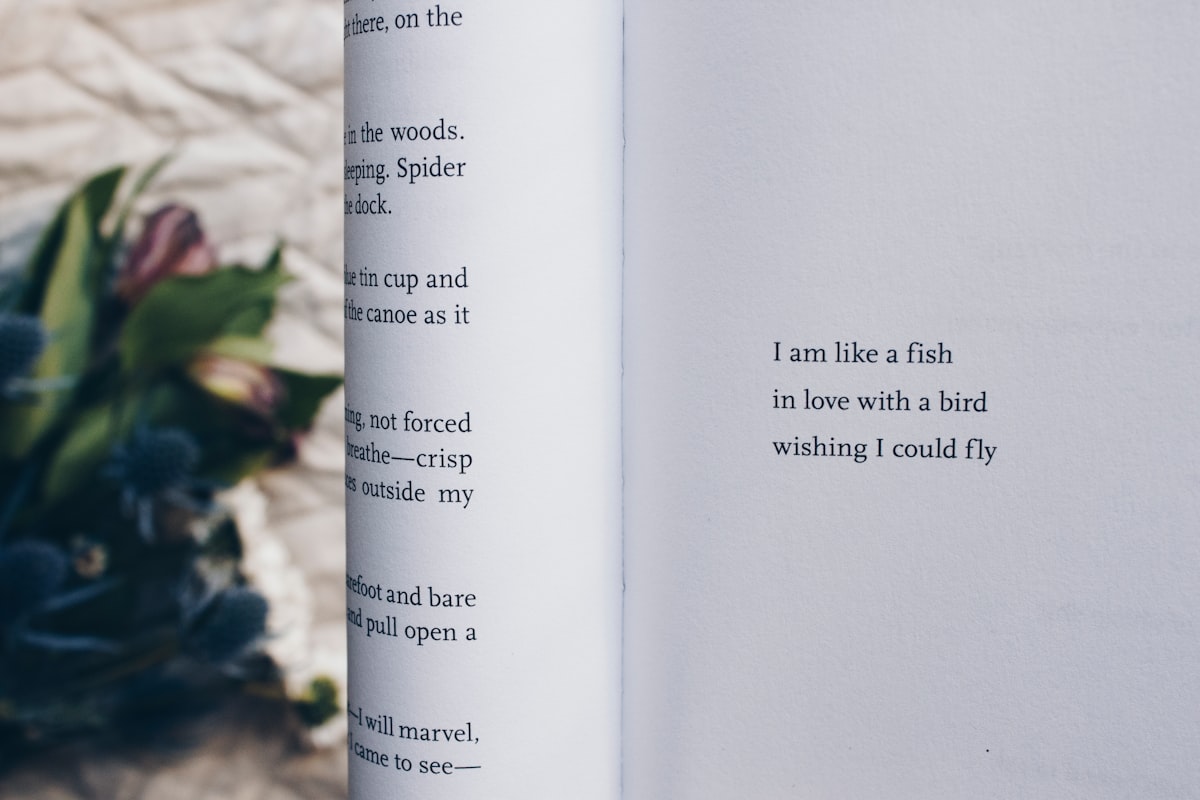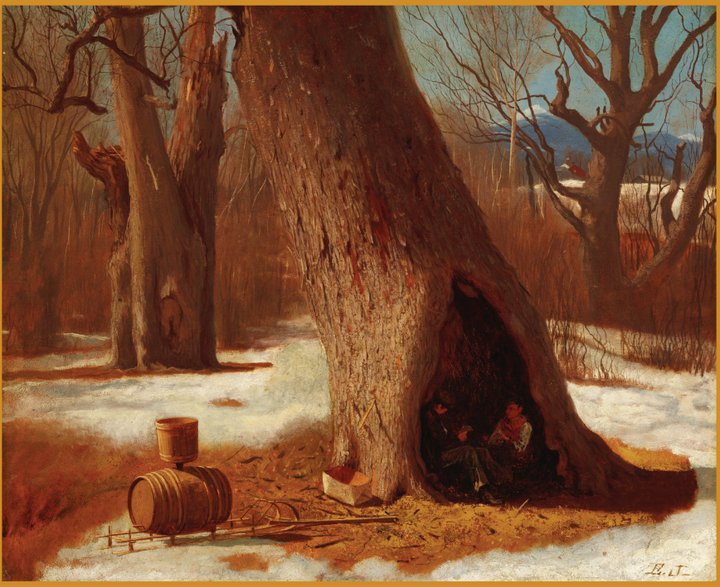Defending the Teenage Love Poem
But like any other teenager, the universe was quick to show me the error in my ways. It happened quickly and easily on a night that shocked itself with intracloud lightning.

In the process of joining a literary magazine, a friend who had sought out my readership told me, “It’s a lot of fun, sometimes you get a lot of mediocre love poems, but I just get good music and power through those.”
We giggled over the idea of sonnets for a while. Then it became less funny and more squint-worthy. I asked what was so wrong with them. Her face flashed red, while the giggles began to sound more like television snow. Defensively, she responded that love poems weren’t the issue, but our generation’s version of them. She painted them to be sticky piles of angst, and Pinterest lists of aesthetic words that were eventually posted on Tumblr. Sometimes their author would anxiously submit them to a literary magazine before they were stuffed into the rejected page of a Google sheet. It was there they finally died.
The Shakespearean sonnets that my generation pretended to respect in school, had been morphed with our hands to become smears of emotion sprinkled with reiterations of “my love.”
That made sense, so I didn’t dwell, taking the job, and proceeded to spend nights judging others’ poetry about relationships and passion, that I had never known. Like the water balloons of pus that speckled across the faces of their writers, I treated love poems like something to be concealed. Popped. Leaving rejection letters like pimple patches, I was convinced that I was helping these writers become aware of how embarrassing they sounded. It was only during moments when I was forced to pull my eyes away from my laptop screen that I let my criticism soften into curiosity. I wondered how my fellow teenagers let the intoxication of puppy love and hormones take over their writing so quickly. What bravery had they swallowed to shamelessly send their cliche stanzas to strangers?
But soon this wonder was quashed by my literary God complex. It was kindled not only by my belief that I was letting them know that the real world didn’t tolerate angst but also by the feeling that I succeeded in pulling away from the stereotypes of Tumblr poetry stanzas. I was a mature, and cultured writer that was above metaphors of moonlight and stolen kisses. There weren’t Pinterest boards to accompany what I had to say. I didn’t Google “aesthetic words.” My Notes App was dedicated to To-Do lists as it should be.
But like any other teenager, the universe was quick to show me the error in my ways. It happened quickly and easily on a night that shocked itself with intracloud lightning.
I sat side by side with someone eating overpriced ice cream that tasted like store-bought strawberry jam. It was my second homecoming, the first one I went with someone I actually enjoyed. We had pulled away from the world and noise because it was easier to savor everything when you hid from the myriad of shrieking freshman TikToking in neon bodycons.
Their knee pressed against mine, and their finger pulled my attention to clouds flashing white and grey, refusing to let the lightning leave its body. I said that it was unreal, that it was probably a rando shining a flashlight at the clouds to freak all the students out. (It’s depressing how easily scared we’re of bangs and flashes now). I believed lightning was to scrape the ground forcing a dozen scarlet and tangerine blossoms to grow, that beauty could only be found in shocks of intensity.
“I promise,’ they laughed, “Electricity stuck inside the cloud, sort of darting off each other. It’s super cool.”
I didn’t say anything, just nodded, because to me it was super cool. Even though I learned (a quick internet search later) that intra-cloud lightning is one of the most unremarkable forms of weather, this didn’t seem to matter. We were witnessing the bouncing of over-excited sparks smashing into a cloud. Every photon was just trying to break through the soft confines of the sky. And photons can’t feel things, even if they do succeed in escaping the sky. But that homecoming night fueled by adrenaline and overpriced ice cream, I just wanted to keep squinting at the flashes of lavender slashed against the clouds and wondered if there could be anything more special.
The excitement of the sky must trickled down to us because my date’s hand had dropped down to the void created by our legs on a cheap outdoor sofa. The heat played in the space between the back of our palms, and I thought it was strange that the human body burned warm enough to let you feel the tension of the person next to you without even touching them. Like how magnets pull together I wanted to feel the veins and muscles that pulsed to make warmth. My impatience overrode all romantic notions that made the best John Hughes movies, and I said "Just take it.” Instantly regretting throwing away all the nervous build up exploding into an aurora of teenage butterflies, for a quick weaving of fingers.
I swallowed my skepticism and eventually got my coming-of-age movie moment when hand in hand became head on shoulder, which became tangles of one person around another person. Under a grey sky, threatening to sprinkle our heads with rain, it became clear to me that there is a limit to the pieces of charred cynicism you can swallow before your mouth begins to loathe the bitterness. That my long-harbored judgment was just envy of people brave enough to have the vulnerability only teenagers could. I realized how stupid it was to smack your own hands away from reaching for the jar of the sweet-spun sugar of teenagehood.
At that moment, while we savored the quiet lightning imploding inside of a guise of grey fluff, I understood that any parent or teacher would have told us to get up and go dancing. This is because they can’t help but be too far from teenagehood. They say they understand all the fire that burns inside our 75% grown bodies covered in acne and anxiety, but when was the last time they tried to write a love poem? They warn us to be careful, cramming our heads with worst-case scenarios as they straighten our hair to make it stormproof. Maybe I should’ve felt nervous sitting in the dark with a boy surrounded by neon people and decor, but I was basking in the feeling of youth and the realization that the sky is beautiful even without stars. The world has given me constellations and sunsets, but despite their regal cleanliness, they are not the only skies worth writing about.
A beautiful sky was born when I refused to make eye contact, and asked, “When you were little did you ever hear that lightning is just God’s camera?” I think they said yes.
Just like I think there is a divine entity out there who was taking photos, so I didn't have to. In a new wave of enlightenment, sitting there in the dark, I thought, “I understand what it means to mature.” Growing up is to appreciate the moment of life that requires you to let go of the camera. To accept that not everything is meant to be refined. Some things are meant to make others look at you and wonder why you don’t know how “embarrassing” you look.
As I write this, I regret not letting them fumble for my hand for just a second longer, prolonging that moment of perfect nervousness and electricity. I know I should have sipped that awkwardness while wondering how much heat it takes to feel the warmth of another's skin without touching it. I learned that when you care about someone more than how you look when you’re with them it shouldn’t take much.
When we are young, this is the only time we’ll ever have to feel alive enough to write awful love poems. A brief flash of 121,144,000 seconds that dissolves away, leaving nothing but the impression of sweetness on our tongues. I imagine that one day our Notes-App poetry will become the ancient hieroglyphics of our generation. Lines of gushing lust will be the beetles suspended in honey amber for the future to find. Something we considered filthy, but now treasured and caught in solidified nostalgia.
There is a purpose to all these love poems and not just the ones that have the voice of a scholar who could speak with intensity and skill. The lyrics that cover the edges of homework are the words of boldness created by the utterances of joy and longing. Shaped by the first kisses of teenagers, who are told they do not know what love is because their brains are wired for destruction. Underdeveloped, and angsty prefrontal lobes that only know fight and flight. No wonder we’re so drawn to bad poetry. Our world feels toos urgent, and fleeting. It's as if these stanzas are supposed to hold onto everything. We try to publish them in literary magazines and message boards so that even if our memories fail us at least someone else will have read our words. An insurance policy to protect the moments of puppy love and lust that went away too soon.
I speak to my fellow teenagers when I say I intend to be greedy with my youth. To write about my angst, and respect those who write about theirs. To indulge in my teenage heartache, butterflies, and burning sparks. Treat my cliches like intra-cloud lightning: something that everyone said was complex and boring, but keep wishing that the flashes would never end.
And to the person who taught me that intra-cloud lightning existed, I’d like to do it again sometime.
Celina Naheed is an Iranian-American poet in Atlanta and she founded the Qafiyah Review. Her work has appeared in the Words Without Borders, “Women, Life, Freedom,” series, the Lumiere Review, Aurora Journal, and others. There's nothing she loves more than watching old movies with her super-mutt.



